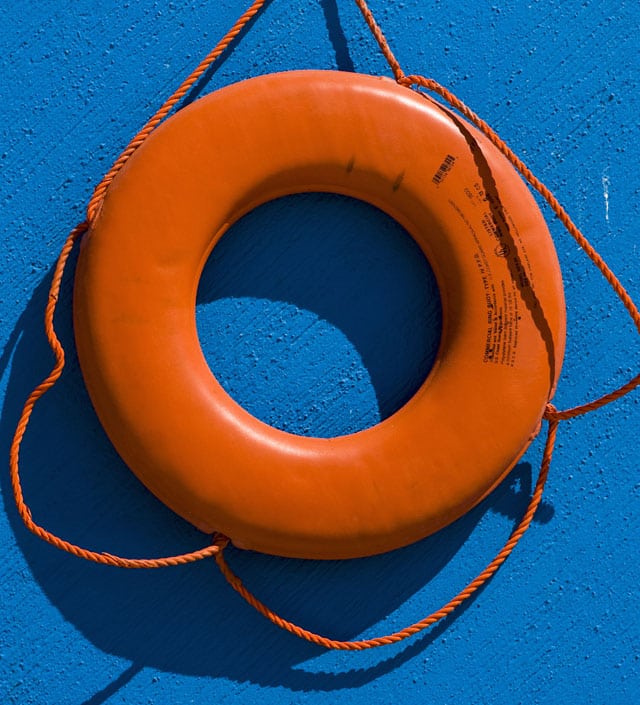In their former careers as continuing care professionals, Annalee Kruger and Kathy Shoaf saw the same sad story play out time and time again. The family of an elderly individual with dementia faces an emergency requiring them to immediately find long-term care. Unprepared, overwhelmed and unfamiliar with the parent’s condition, they must choose from bad choices, including a limited selection of available continuing care spots or hiring live-in aides at ruinous rates.
“Adult kids were coming in because mom fell; she broke her hip,” Kruger recalled in a joint interview with Shoaf. “She’s the caregiver to dad, who has dementia. The hospital says, ‘Here’s a list of facilities. Go find one by noon tomorrow, because we’re discharging.’ And every single day for 22 years, adult kids were coming in. They had no idea what questions to ask, what to look for during the tour.”
Shoaf concurred. “Not only are they in your office not knowing what to do, but they’re in your office pissed off because something didn’t go the way that was supposed to go.”
As the result of their experiences, each woman took a new career path to help families overwhelmed by the burden of caregiving loved ones with dementia. Not surprisingly, their paths crossed, and they’ve teamed up in their new mission.
When Families Fail to Plan
A registered nurse and certified travel agent, Shoaf in 2016 founded Elite Cruises and Vacations, a travel agency specializing in respite cruises for caregivers of individuals with dementia and other debilitating conditions. Kruger in 2011 founded Care Right, a firm providing education, planning and consulting services to families and financial advisors on caring for individuals with dementia. She provides educational counseling services for families on the cruises.
During her two decades working in continuing care retirement communities, first as a social worker and then as executive director, Kruger witnessed families overwhelmed by the demands of providing care for parents with dementia.
“Families are not talking about this,” said Kruger. “Their loved one ends up in whichever facility has an open bed at the time they need it. And I promise you, it’s not usually going to be a good fit. And if we don’t plan, then mom ends up in Facility A, and dad ends up in Facility B, or families break the bank trying to stay at home, and now they have financially jeopardized their options of getting into any other type of quality care community, because now we’re looking at Medicaid.”
Equal Parts Respite and Education
The cruise packages facilitated by Shoaf and Kruger are designed to be equal parts respite for caregiver family members and education that will allow them to better plan and cope, both women said. To provide that respite, Shoaf has assembled a team of caregivers who provide adult day care programming for those with dementia.
“We’ve created a format so that the caregivers have an honest respite, an honest relaxation time, but they also are given realistic, usable information,” said Shoaf, who lives in Chicago.
“Unfortunately, the healthcare system — even in Chicago, even in the mega hospitals in the city — they do not have the time or the resources to give these families anything more than the diagnosis. ‘Well, your mom’s got Alzheimer’s. See you. Here’s a couple pills’,” she said
“So, Annalee will be there to give them solutions, options, ideas, thoughts, of things that they can consider when the next crisis happens,” Shoaf added, noting that Kruger offers group workshops for families as well as the option for one-on-one sessions with every family.
Kruger said the cruises allow families to relax and take in the information they need. “When you’re a caregiver, you’re in survival mode. And so, the value is, while the family caregivers are in sessions with me, they can actually start to breathe and come up for air and have that clarity, because they have the peace of mind knowing that their loved one is with Kathy and her team, being taken care of, being entertained, being loved, being accepted for who they are.”
Restored, Reenergized and Informed
The goal of the cruises is for family caregivers to return home restored, re-energized and equipped with the information they need to make informed decisions, including an aging plan, Kruger said. An upcoming Caribbean cruise from Nov. 30 to Dec. 7 is themed “Managing Caregiving Without Losing Yourself.”
According to Kruger, family caregivers will learn how to manage dementia progression, how to stay connected with their care recipient, how to have meaningful interactions with the loved one and the importance of self-care. Kruger will speak about the senior care landscape, including the differences in care levels, such as independent living, assisted living and secured memory care, the costs of care and the downside of aging in place. She also will show how to assemble a “grab and go” binder containing vital information, including estate documents, accounts, passwords and business succession plans.
Participants will get “goodies,” including Kruger’s book “The Invisible Patient: The Emotional, Financial, and Physical Toll on Family Caregivers: How to Plan Ahead and Save Time, Money, and Stress.”
Prices for the Nov. 30-Dec. 7 cruise range from $4,509 per person for an interior cabin to $8,070 per person for a suite. “It’s very transparent,” Shoaf said about the pricing. “It’s on our website. We are about $175 per day per person for the professional fees.”
Adult Daycare and 24/7 RN Support
While Kruger is meeting with family caregivers, Shoaf’s staff will be attending to the care recipients. The cruises have one professional staff member for every four travelers and registered nurse support is continuously available, Shoaf said.
“We literally answer and salute, make solutions for all of their problems, with RN support 24/7,” she said. The cruises offer a daily adult daycare program put together by a dementia-certified activity director.
Shoaf primarily uses the Holland America Line for her packages, citing among its advantages, fewer children. “It’s not that our people don’t like children,” she said. “They all have lovely grandchildren, but we really don’t need them underneath their feet. … We don’t need rock climbing walls and four-story water slides. We just need the opportunity to enjoy lovely entertainment, have fantastic food and then enjoy amazing ports of call.”
The cruises offer a variety of destinations. “We certainly do not stick with the Caribbean,” Shoaf said. “We try to go to bucket list destinations, and the Panama Canal and Alaska are both bucket list choices for many people.” Other locations include the Mexican Riviera, Bermuda and Canada. Cruises last seven to 12 days and are limited to 55 to 60 participants, which is the capacity of most ships’ conference rooms.
Private-duty Aides Can Attend
Participants typically include a parent with dementia and one or more family members, but can include aides brought by the family or hired for the cruise by Shoaf. She and her staff consult with each family before the cruise about the care recipient’s needs. “We will manage to create a situation so that anyone can go, as we may have to add additional private-duty help,” she said. “I can do that from my end, and then the family will just pay an upcharge, or the family can bring private-duty assist.” Participants are required to have medical insurance.
Kruger said the trips can be especially meaningful for families because they can sometimes be the last shared experience. “It very well could be the family’s last trip to take as a family because of someone passing away,” she said.
Value Add for Financial Advisors
For financial advisors, the cruises are an opportunity to assist clients who are caregivers to family members with dementia, Kruger said. They can also be a powerful marketing tool, she added. “They can differentiate themselves from other financial planners who aren’t letting their clients know about a dementia-friendly cruise.
“Cathy has developed such a niche market in this,” Kruger said. “There are, to my knowledge, no other Cathys in the world doing this. She has created truly a unique business model. And so, from a marketing perspective, it’s an easy thing to look through your book of business as a financial advisor and say, OK, who do I know, or who do I think would be a really good fit for this?”
In a four-decade career in journalism, Ed Prince has served as an editor with many of New Jersey’s leading newspapers, including the Star-Ledger, Asbury Park Press and Home News.







